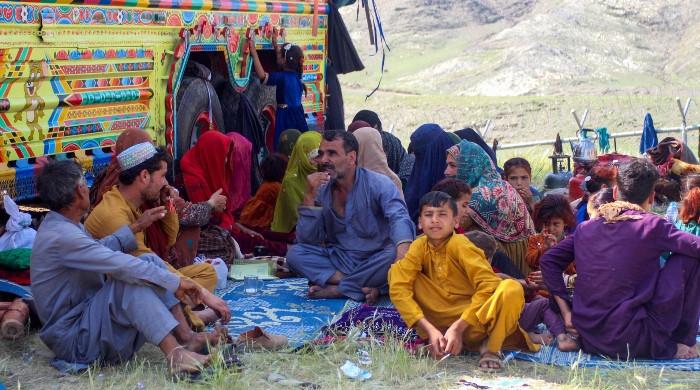Repatriation of Afghan Citizens Continues: Over 5,000 Nationals Returned Via Torkham Border
- 107 Afghan citizens apprehended in Punjab.
- 295 Afghan citizens were deported from AJK.
- Over 0.85mn illegal foreigners repatriated.
Immigration authorities report the repatriation of Afghan citizens is ongoing through the Torkham border crossing, with 5,236 Afghan nationals returned to Afghanistan on Thursday.
Officials stated that 3,865 of those repatriated voluntarily arrived at the Landi Kotal transit camp. Additionally, 107 Afghan citizens detained in Punjab were transferred to Torkham for deportation.
Authorities also reported that 295 Afghan citizens were deported from the Azad Jammu and Kashmir region.
The repatriation process highlights Pakistan’s ongoing commitment to addressing the issue of illegal foreign residents. The countrywide initiative includes the return of Afghan Citizen Card holders to their home country.
Minister of State for Interior Talal Chaudhry stated on Thursday that the Afghan citizens are being repatriated with dignity.
During a press conference in Islamabad, Chaudhry mentioned that transit points have been established in all provinces to assist Afghan citizens, and a helpline has been set up for citizens of the neighboring country.
He affirmed that the repatriation of illegal foreign nationals, including Afghan Citizen Card holders, will continue without any extension to the deadline that expired last month.
To date, 857,157 illegal foreign nationals and Afghan Citizen Card holders have been repatriated to their respective countries, he said.
It is important to note that the government had set a deadline for them to leave the country by March 31.
The minister emphasized that this deadline has passed and will not be extended.
“A one-document regime will be fully implemented, requiring valid visas and passports to enter Pakistan,” the minister added.
He clarified that Afghan citizens being repatriated can visit, work, and stay in Pakistan under the one-document regime policy, provided they have valid visas and passports.
Talal noted that the policy of repatriating illegal foreign nationals has been in effect since October 30, 2023.
He explained that the repatriation will occur in phases. The initial phase involved sending back illegal foreign nationals without legal documents. The second phase focuses on repatriating Afghan Citizen Card holders, and the third phase will involve deporting Afghan citizens holding Proof of Registration cards.
The minister emphasized that Pakistan made this decision after hosting millions of Afghan people for decades, explaining that the decision was taken in light of current realities. He added that it has been observed that Afghan citizens are involved in narcotics trade and terrorism-related activities in Pakistan.
He further stated that the revenue generated through narcotics is used to fund criminal and terrorist activities.
Regarding internal arrangements to ensure the dignity of Afghan Citizen Card holders, Talal confirmed that all provinces, including Azad Kashmir and Gilgit-Baltistan, are fully aligned with this initiative.
He mentioned that 38 transit points have been established in Punjab, three in Khyber Pakhtunkhwa, two in Sindh, three in Azad Kashmir, and one each in Balochistan, Islamabad, and Gilgit-Baltistan. The minister elaborated that Afghan Citizen Card holders are accommodated at these facilities before being transported to Afghanistan. He assured that these individuals are provided with shelter, food, medical care, and transport facilities, while their honor and dignity are maintained throughout the repatriation process.
Detailing the figures for registered Afghan nationals, the minister reported that there were 815,247 Afghans registered as Citizen Card holders and 1,469,522 registered under the Proof of Registration program.



Comments (0)
No comments yet. Be the first to comment!
Leave a Comment